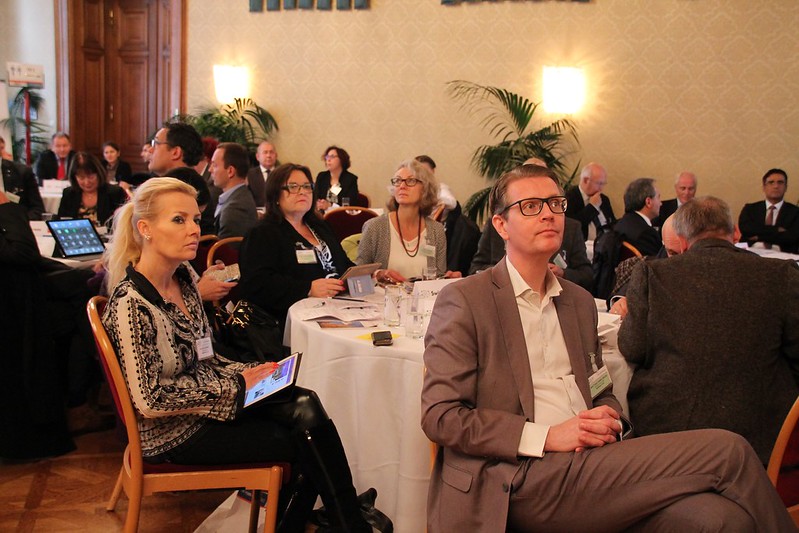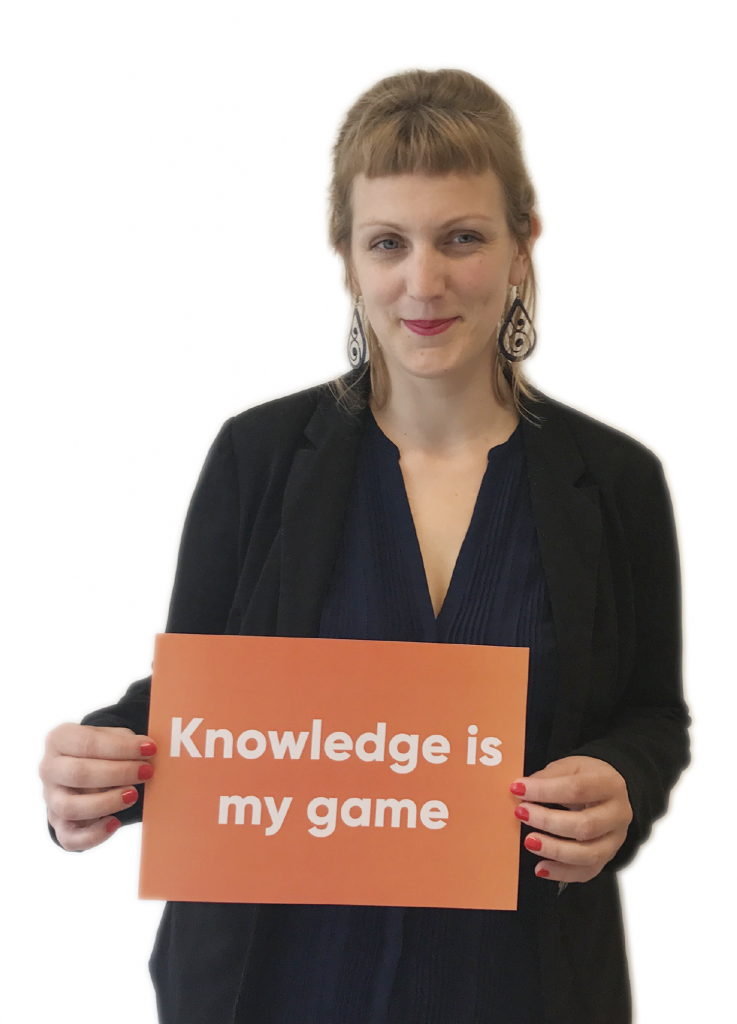With 2018 a year designated by the European Commission as European Year for Cultural Heritage, Gävleborg (SE) decided to develop a project to highlight what the region can do to promote conservation, digitisation, infrastructure, research, and skills development in the field. The recently published report Cultural Heritage Counts for Europe demonstrates that cultural heritage creates job opportunities, attracts investment, and that it can strengthen social cohesion.
Cultural heritage for all
The project developped by the Office for Cultural Development in collaboration with the Gävleborg County Administrative Board will highlight the cultural heritage of the region and ensure that it is accessible for a wider and more diverse audience. Among other things, this includes developing methods to attract people and to acquire further training in cultural heritage issues, in order to promote social inclusion and integration. The integration part is an extremely important instrument for the future and a crucial element in an election year, where the integration issues may be instrumentalised.
Gävleborg’s strategy is to use cultural heritage as a resource for achieving a sustainable and inclusive society, from the social, economic and environmental point of view. This means making cultural sites available physically, in different locations, enabling both inhabitants and visitors to experience and enjoy the natural and cultural environments.
A catalyst for exchanges
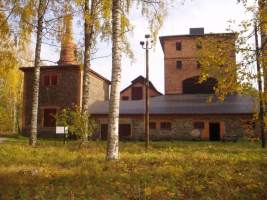 Gävleborg has particularly remarkable cultural sites in very diverse places: along the coast and watercourses, in the forest, the industrial environments, and in the cultural landscape. The European Year of Cultural Heritage is a unique opportunity for Gävleborg to invest in the cultural heritage on its entire territory. This project, therefore aims to make full use of the attractiveness and amenity value of the cultural heritage. Furthermore, it contributes to increasing the knowledge of and pride of citizens of the cultural heritage of the county. The European Year of Cultural Heritage is seen as a catalyst for exchanging and developing considerations with regards to cultural heritage, and to demonstrate the relationship between culture and cultural heritage.
Gävleborg has particularly remarkable cultural sites in very diverse places: along the coast and watercourses, in the forest, the industrial environments, and in the cultural landscape. The European Year of Cultural Heritage is a unique opportunity for Gävleborg to invest in the cultural heritage on its entire territory. This project, therefore aims to make full use of the attractiveness and amenity value of the cultural heritage. Furthermore, it contributes to increasing the knowledge of and pride of citizens of the cultural heritage of the county. The European Year of Cultural Heritage is seen as a catalyst for exchanging and developing considerations with regards to cultural heritage, and to demonstrate the relationship between culture and cultural heritage.
One of the cultural policy objectives stresses the importance of “promoting a living cultural heritage that is conserved, used, and developed”. Well-conserved cultural sites are rich in history and are often attractive for people to visit; a resource for the public health and for social well-being. Gävleborg’s cultural heritage strategy, which has been developed in collaboration with the regional actors, underlines that the cultural heritage is a resource for achieving a socially, environmentally, and economically sustainable society. It is essential to coordinate resources to strengthen the importance of the cultural heritage, which in turn contributes to a socially sustainable and inclusive society.
The European Year of Culture will also give new impetus for follow-up actions by bringing together stakeholders and generating new collaborations and initiatives
A rich culture
The Year of Cultural Heritage will help raise awareness and further develop the county’s rich cultural heritage through various cultural expressions: music, art, film and digital media, dance, handicrafts, literature, cultural and natural environments etc. The intangible cultural heritage is highlighted as well through different activities. Stories of the county’s various cultural heritage sites shall be alive and expressive. An important part is to take advantage of the experience gained from the year of cultural heritage in order to develop and make certain operations permanent.
Senses, experiences & knowledge
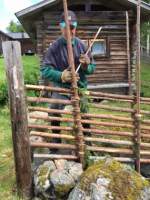 The three-year project will be implemented around three main approaches:
The three-year project will be implemented around three main approaches:
- Cultural heritage for all the senses
- Cultural heritage for experiences
- Cultural heritage for knowledge
The project will allow to carry out the inventory of sites, identify stakeholders as well as national and international actors for exchange and collaboration. Connecting potential partners will be a very important aspect of the project which will make use of commitments, tap into the wealth of inspiration and ideas for activities to develop afterward.
The Virtual Reality project, which was initiated by the world heritage site “Decorated Farmhouses of Hälsingland” will be intensified and upgraded.
In the course of 2018, activities will be organised to attract a wider audience. During the year a program is planned, including continuous lectures, demonstrations, and events.
– “Cultural heritage for all the senses” is in Jan – April. The period is characterised by arrangements on the theme of cultural heritage, based on taste (food), hearing (e.g. music), sight (exhibitions, demonstrations), and touch (handicraft).
– “Cultural heritage for experiences” is in May – Sept. Makes the cultural heritage accessible through cultural experiences, demonstrations and events, e.g. through art, theatre and music in cultural settings that reflect the cultural heritage of the county.
– Lastly, “Cultural heritage for knowledge” is in Oct – Dec. This is the period for seminars, awareness-raising activities such as classes in care and development of cultural sites and intangible cultural heritage.
Year three (2019) focuses on utilisation and dissemination of experience. Utilising contacts, initiatives for networking etc. The activities will be evaluated as a basis for what is sustainable enough to proceed with in the long run. The evaluations, which are carried out continuously during the project, are used to find further work within the ordinary activities on a regional and a local level.
Objectives
Gävleborg wants to achieve specific targets:
- Recognition of the culture and cultural heritage of the county of Gävleborg in and outside the county.
- Utilisation of creative ideas to create conditions for continued development with regards to the cultural heritage.
- Creation of opportunities for inhabitants of the county and visitors to take part of the cultural heritage.
- Increased accessibility to cultural heritage
- Presence of cultural heritage in the county ‘s representation in various media, e.g. on the municipal and regional websites and in other forms of informational material.
- Increased knowledge of the cultural heritage
- Pride within the County of the cultural heritage
Share experiences & develop a project
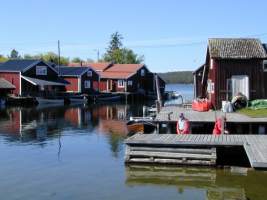 The Gävleborg’s project is a good example of how to use a Europe-wide initiative to derive concrete impacts on region’s territory.
The Gävleborg’s project is a good example of how to use a Europe-wide initiative to derive concrete impacts on region’s territory.
Cultural Heritage will be also discussed during the workshop of the sub-committee on Culture, at the AER Spring Plenary meeting, on the 23rd March 2017, in London, UK. During the workshop participants will be provided with information on funding opportunities in this framework and share experiences on financing cultural heritage in regions.
Related articles
Follow AER!
